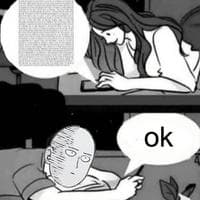Link typ osobowości MBTI
Osobowość
"Jaki typ osobowości jest {profilename}? {profilename} jest typem osobowości {mbti} w mbti, {enneagram} - {iv} - {tritype} w enneagram, {big5} w Big 5, {sociionics} in Socionics."
“link doesnt have a personality” “hes ISTJ because hes recovering memories” “hes an ISTJ because hes a devoted knight” “hes ISTJ because he has the same profession as his father” 1. not true. i’m gonna show you something 2. except thats a game mechanic and has nothing to do with his personality lol. anyone would want to recover their memories if they’re an amnesiac. also Si =/= having memories. 3. he’s been zelda’s knight in all the other games so why is this any different 4. i’d argue that his natural inclinations and skills predisposed him to being a soldier. my ESTP friend told me “my dad is ISTP and I was born in the same society as him I probably would’ve been a pilot too” if he’s not ISTP then explain this. dude’s Ti/Fe game crazy https://chubby-dumpling.tumblr.com/post/672948362763485184 Tamana: “I think I told you to leave, didn’t I?” Link: (just standing there) “Yeah, I think you did.” Kapson: “Joining two souls is a true honor, one I shall stake my life on. Just one more wedding…and I shall be fulfilled.” Link: “Get a load of this…” Purah: “You didn’t think I’d fix your Sheikah Slate for free, did you?” Link: “I did.” Purah: (Hmm.. Post Slumber of Resoration, subject is plagued by…presumptuous…tendencies. Noted!) Anyhoo… do you have any questions for me? Link: “Aren’t you a child?” Molo: “They’re just sitting in there, free for the taking! Well…if you can get past all the bloodthirsty monsters of course.” Link: “Go for it.” etc and much more Ti-Se stuff. i’ve played the game so much and the overall impression i got of link from his responses was someone who was secure in the outside world and easily molded himself to fit wherever he may find himself, with a bit of sass/trolling and very straightforward internally consistent responses. link clearly doesn’t feel that the world is unpredictable the way an ISTJ would. “The attitude of the xSTP is thus flipped inside out: while the xSTP sees the outside world as predictable and themselves as unpredictable, the ISTJ sees themselves as predictable and the world as unpredictable.” -michael pierce he also doesnt seem to have any Fi whatsoever? it’s pretty clear he’s some wandering guy with a subtle charisma who much prefers to answer with jabs that adhere to internal logical congruence and technicalities, like diogenes. he’s comfortable with the external world and finds it to be predictable (as Ti + Ni tends to do because it collapses every detail into an essence that can be explained with a few eternally true axioms from which every actual thing will follow or be explained by), thus he’s able to joke around with it. he’s not clinging onto any internal detailed representation of it because the outside is unpredictable like the ISTJ would. he enters a flow state directly with the external world. “Such dauntlessness is obtained through self-discipline, i.e. the embodiment of an unembodied Truth, the contextualization of a universal. “Teach your body strategy,” said Miyamoto Musashi; “…through fighting with enemies you will gradually come to know the principle of the Way.” In other words, knowing the rules of chess (“universal laws of nature”) is not a sufficient condition for winning at chess; one must also discern each particular metagame generated within each particular match (“particular rules”). It is a matter of intuiting the best application of the universal principle within a given context. It is a temporalizing of the atemporal, the living out of an archetype, a theocratic mystery, which cannot be solved linguistically, but has to be lived through contextually. Musashi insisted, “Language does not extend to explaining the Way in detail, but it can be grasped intuitively…If you merely read this book you will not reach the Way of strategy. Absorb the things written in this book.” Only broad strokes of the pen are suitable for recording Truth; the details must be found out on one’s own. The principle shines like the moon behind a hilltop castle, showing the destination and general path, but not the potholes, the thorn bushes, the wolves along the way. Thus, Musashi advises, “you must train day and night in order to make quick decisions.” The concept of “timing” is another point of intersection between the atemporal, universal principle and the temporal, contextual body. One must learn how to see, in real-time, the unseen scaffolding of reality; one must conform one’s body to the unembodied principle. This is self-discipline. Ti lifts the contextual body onto a higher plane. But this leads to several complications related to their primitive feeling. Unlike the ENFJ or INFJ, who try to mitigate their truths for the sake of their audience, the ISTP serves their medicine sugar-free. They become primitive in their sense of Fe unity, so that, although their rationality is ultimately universal, they will sabotage this goal by openly offending their audience, fearlessly “telling it like it is,” or “doing it like it is”
Biografia
A mysterious young man on a mission to save a desolate Hyrule... 17 years before the Great Calamity, Link was born into a family of knights, eventually being chosen by the Master Sword. After becoming Zelda's appointed knight, he accompanied her everywhere as she prepares herself for Calamity Ganon's return. He is honest and serious but sometimes overly committed to his duties, remaining silent and expressionless, which causes initial distrust from the Princess. This is later replaced with attachment after he proves his worth. However, Calamity Ganon's awakening brings disaster. The events of Breath of the Wild begin with an amnesiac Link in deep slumber. He is guided by Zelda's voice to "shine upon Hyrule once again."























